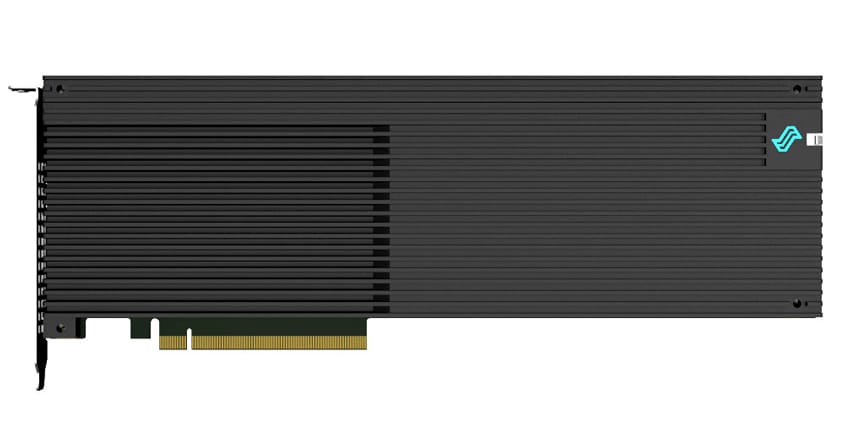
Today at the Flash Memory Summit, Liqid announced what it is calling the world’s fastest NVMe storage, Liqid Element LQD4500 PCIe Add-In-Card (AIC) or Honey Badger. The Element LQD4500 is a FHFL AIC that is ultra-thin and is based on Liqid’s award-winning composable fabric and software. The NVMe takes advantage of Gen 4 PCIe specifications and can deliver up to 4 million IOPS of random performance, over 24GB/s of throughput and less than 20ms. The device will be available in capacities as high as 32TB.
The new AIC is fully composable to hit the high-performance and low latency while also giving the LQD4500 agility. The composable nature of the NVMe storage means in can be leverages with other Gen 4 devices such as GPUs, FPGAs, as well as modern CPUs, and Intel Optane; all of which is critical to AI, 5G, IoT, edge computing, dynamic cloud deployments, and HPC. The Element LQD4500’s architecture gives users the flexibility to have different drive configurations ranging from max performance to max redundancy. The new AIC also comes with enterprise-class power failure protection.
The LQD4500 features include:
- 24GBps Reads at 128K blocks
- 16GBps Writes at 128K blocks
- Up to 4M 4K IOPS
- 20us latency
- Up to 32TB raw capacity
- Power fail protection
- NVMe 1.3 support
- Enterprise class features
- SED and TCG support
Liqid will be demonstrating Element LQD4500 at Flash Memory Summit 2019, August 6-8, with several of its partners including Phison Electronics Corps. (219), One Stop Systems, Inc. (119), Toshiba Corporation (307), and PCI-SIG (949).
Sign up for the StorageReview newsletter

